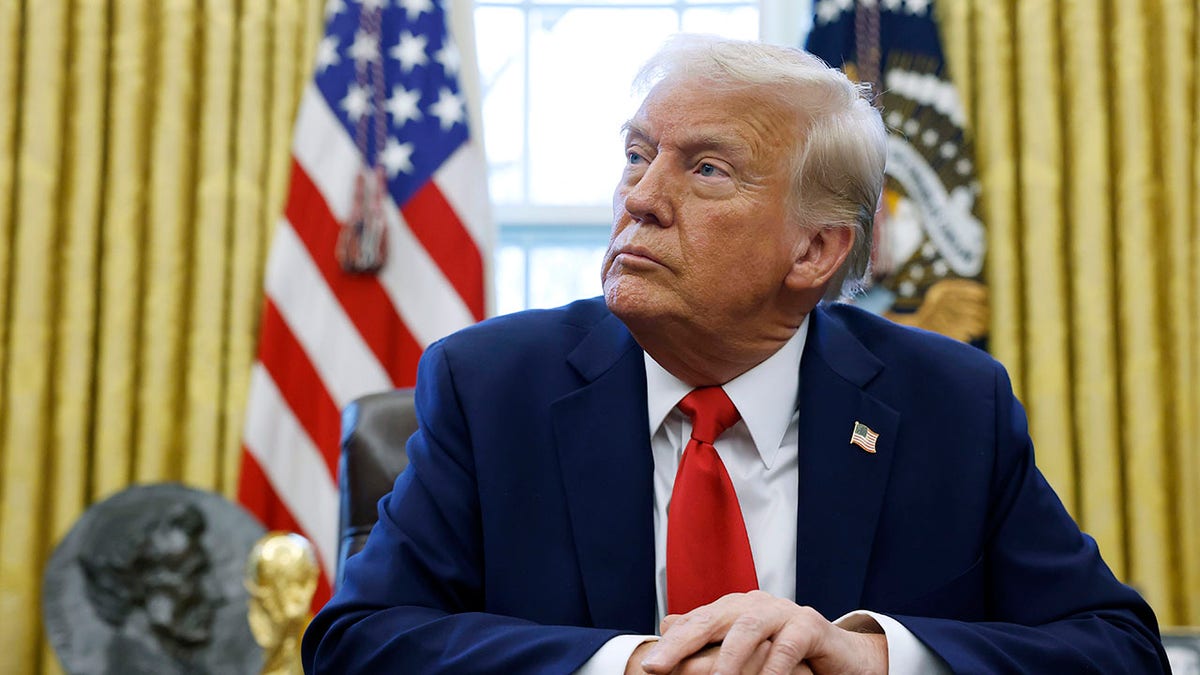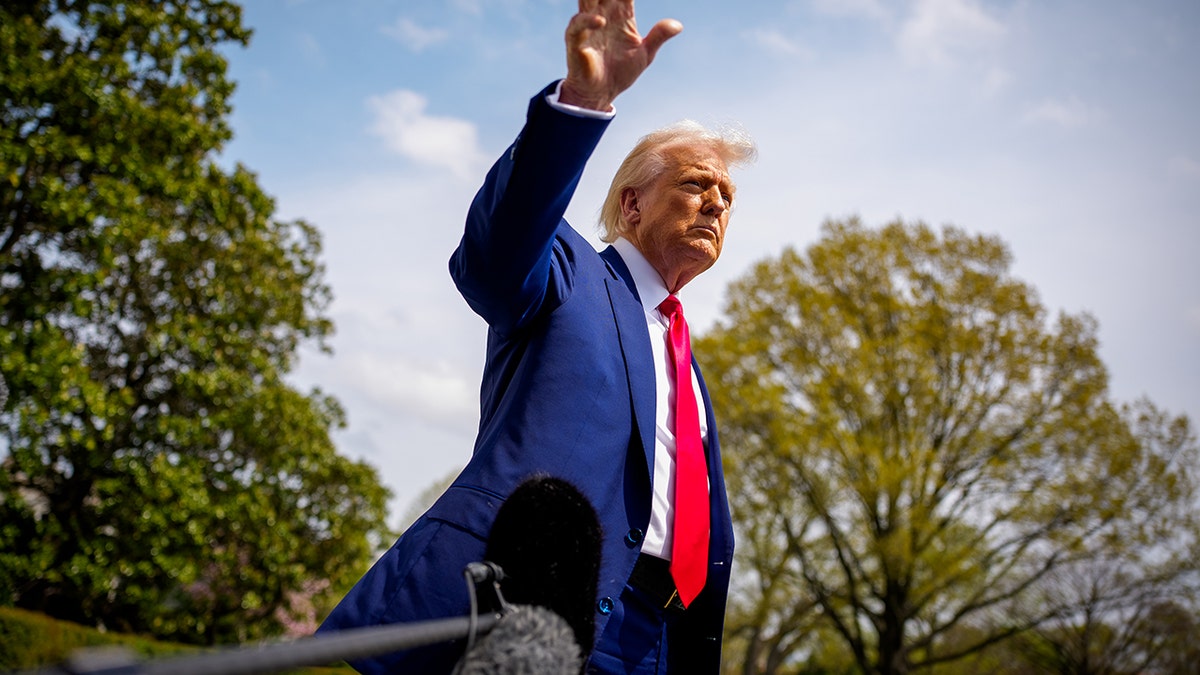SCOTUS rules on Trump’s birthright citizenship order, testing lower court powers
NEWYou can now listen to Fox News articles!
The Supreme Court on Friday delivered a major victory in President Donald Trump‘s quest to block lower courts from issuing universal injunctions that had upended many of his administration’s executive orders and actions.
Justices ruled 6-3 to allow the lower courts to issue injunctions only in limited instances, though the ruling leaves open the question of how the ruling will apply to the birthright citizenship order at the heart of the case.
The Supreme Court agreed this year to take up a trio of consolidated cases involving so-called universal injunctions handed down by federal district judges in Maryland, Massachusetts and Washington state. Judges in those districts had blocked Trump’s ban on birthright citizenship from taking force nationwide – which the Trump administration argued in their appeal to the Supreme Court was overly broad.
The Supreme Court’s arguments in May focused little on the merits of those universal injunctions – and on Friday, the court made clear that it is not ruling on whether the birthright citizenship orders are constitutional.
100 DAYS OF INJUNCTIONS, TRIALS AND ‘TEFLON DON’: TRUMP SECOND TERM MEETS ITS BIGGEST TESTS IN COURT

Instead, it instructed the lower courts to “move expeditiously to ensure that, with respect to each plaintiff, the injunctions comport with this rule and otherwise comply with principles of equity.”
They also stayed any enforcement of the orders from taking effect for 30 days.
“The applications do not raise – and thus we do not address – the question whether the Executive Order violates the Citizenship Clause or Nationality Act,” Justice Amy Coney Barrett said, writing for the majority. “The issue before us is one of remedy: whether, under the Judiciary Act of 1789, federal courts have equitable authority to issue universal injunctions.”
“A universal injunction can be justified only as an exercise of equitable authority, yet Congress has granted federal courts no such power,” she added.
Justices Sonia Sotomayor, Elana Kagan and Ketanji Brown Jackson dissented in the case.
READ THE OPINION BELOW. APP USERS: CLICK HERE
Sotomayor, in a scathing dissent, characterized the decision as “nothing less than an open invitation for the Government to bypass the Constitution.”
“The Executive Branch can now enforce policies that flout settled law and violate countless individuals’ constitutional rights, and the federal courts will be hamstrung to stop its actions fully. Until the day that every affected person manages to become party to a lawsuit and secures for himself injunctive relief, the Government may act lawlessly indefinitely. Not even a decision from this Court would necessarily,” she said.
In a separate dissent, Jackson wrote that the decision from the majority “will disproportionately impact the poor, the uneducated, and the unpopular – i.e., those who may not have the wherewithal to lawyer up, and will all too often find themselves beholden to the Executive’s whims.”
The Supreme Court agreed in April to hear the consolidated cases, which focused on three lower court judges in Maryland, Massachusetts and Washington state who issued “universal” injunctions against Trump’s birthright citizenship executive order.
But that wasn’t the main focus of the appeal, or the May 15 oral arguments before the high court.
NINTH CIRCUIT REJECTS TRUMP’S BID TO REINSTATE BIRTHRIGHT CITIZENSHIP ORDER

Rather, the justices weighed whether lower courts should have the authority to issue nationwide injunctions at all, or whether doing so exceeds their authority, as argued by Trump officials.
The ruling is expected to have sweeping implications for U.S. district courts, and comes at a time when presidents, including both Democrat and Republican administrations, have sought to use executive orders as a means of sidestepping a clunky, slow-moving Congress.
Trump praised the statement on social media Friday, which he described as a “GIANT WIN” in the Supreme Court. He also said he plans to hold a press conference on the decision at 11:30 a.m.
“Even the Birthright Citizenship Hoax has been, indirectly, hit hard. It had to do with the babies of slaves (same year!), not the SCAMMING of our Immigration process,” he said on Truth Social. “Congratulations to Attorney General Pam Bondi, Solicitor General John Sauer, and the entire DOJ.”
Federal judges across the country have blocked Trump’s ban on transgender persons serving in the U.S. military, ordered the reinstatement of core functions of the U.S. Agency for International Development (USAID), and halted Elon Musk’s government efficiency organization, DOGE, from oversight and access to government agencies, among other things.
Justices across the ideological spectrum appeared to agree during oral arguments this month that the use of universal injunctions has surged in recent years – but after more than two hours, remained split on how to proceed.
No easy solution emerged to the thorny legal problem, as the justices wrestled with a tangle of procedural questions over whether to scale back the use of universal injunctions and what legal standard should govern them.
Sauer argued that lower court judges have used universal injunctions to act beyond their authority and block the lawful powers of a sitting president.
But Sotomayor noted that blocking or limiting lower court injunctions could invite hundreds or thousands of new individual lawsuits.
“Your theory here is arguing that Article III and principles of equity [clause] both prohibit federal courts from issuing universal injunctions to have your argument,” she said later, adding: “If that’s true, that means even the Supreme Court doesn’t have that power.”
Kagan, meanwhile, pointed out the practical challenge of expecting the Supreme Court to weigh in on every issue now handled by lower courts, which have already faced hundreds of federal lawsuits during Trump’s second term.
APPEALS COURT BLOCKS TRUMP ADMIN’S DEPORTATION FLIGHTS IN ALIEN ENEMIES ACT IMMIGRATION SUIT

She also noted to Sauer that the Trump administration has lost every federal lawsuit challenging the birthright citizenship executive order, including under judges Trump appointed during his first term.
As expected, several conservative justices on the court, including Justice Clarence Thomas, expressed criticism of universal injunctions.
New Jersey Solicitor General Jeremy Feigenbaum, representing the states, acknowledged that there could be alternative remedies for federal courts other than nationwide injunctions – though he suggested that in certain cases, the class action alternative presented by the Trump administration may not move fast enough to grant relief in certain cases.
“We are sympathetic to some of the concerns the United States has about percolation, about running the table in particular cases,” he said. “We just don’t think that that supports a bright line rule that says they’re never available.”
Roberts and Sotomayor questioned Feigenbaum more in depth on how to determine in what cases universal injunctions should not be the preferred remedy and how to ensure district courts are following that.
Lawyers for the Trump administration asked the high court to review the case earlier this year, arguing that the three lower courts, each of which blocked Trump’s birthright citizenship order from taking force nationwide, acted beyond the scope of their authority.
Solicitor General Sauer stressed this point during oral arguments earlier this month, telling justices that universal injunctions “require judges to make rushed, high-stakes, low-information decisions.”
“They operate asymmetrically, forcing the government to win everywhere,” he said, and “invert,” in the Trump administration’s view, the ordinary hierarchy of appellate review.
The Supreme Court decision will have sweeping implications, both in the near and longer term, with knock-down effects on the more than 300 federal lawsuits that have challenged White House actions since Trump’s second presidency began on Jan. 20, 2025.
Bondi praised the high court’s ruling on social media Friday.
“Today, the Supreme Court instructed district courts to STOP the endless barrage of nationwide injunctions against President Trump,” she said, adding that the ruling “would not have been possible without tireless work from our excellent lawyers” at the Justice Department and Sauer.
“This Department of Justice will continue to zealously defend @POTUS’s policies and his authority to implement them,” she added.
